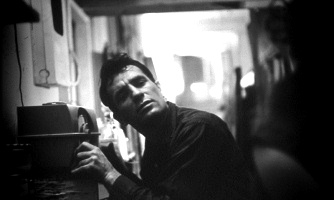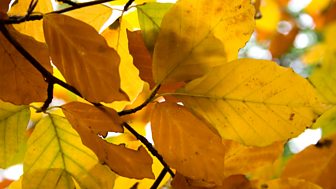Chaque moment de l'entretien entre Vivien Duffield et Michael Berkeley est digne d'attention et mérite l'admiration et la reconnaissance de l'auditeur. C'était le dimanche 13 août et c'est en ligne pour un mois : Vivien Duffield Private Passions.
Le résumé ci-dessous présente la septuagénaire et ses choix musicaux où l'on relève Richard Strauss's Alpine Symphony. Does it ring a bell ? It should, and several actually, puisque Dame Vivien, qui se dit ''blown away'' par la première écoute de cette œuvre, rappelle que c'est la seule fois où elle aura entendu des cloches alpestres en concert. Et pourquoi le relever ? Pardi, parce que le 17 août 2017
Vivien Duffield, d'origine juive par sa mère, française, et par son père, anglais, émigré de Lettonie (la manière dont elle conte la rencontre des deux vaut le détour) rappelle ses années à Paris, elle tient aussi des réflexions sur le choix des organisations (culturelles ou non) à financer, et last but not least sur Wagner, Ravel et... Maria Callas, qu'elle a vue et entendue dans Tosca (sur Callas, voir France Musique cet été : L’été de la Callas).
Enfin, un intéressant échange rapporté ici à grands traits :
MB :"Si la mise en scène ne vous plaît pas (dans Wagner), vous pouvez toujours fermer les yeux et apprécier la musique ?"
VD : " Si c'est pour être assise inconfortablement sur un siège en bois et payer 500 livres,je préfère écouter un CD sur une bonne HiFi chez moi dans un fauteuil" .
Pour les conditions d'écoute de la musique, voir aussi ici Hugues Dufourt, les cadres d'écoute de la musique contemporaine.
* Dame Vivien Duffield is one of our leading philanthropists, and her passion for the arts - and particularly opera - is reflected in her giving. Her Foundation, the Clore Duffield Foundation, has supported the Royal Opera House, the Tate, the Royal Ballet, the British Museum, the Natural History Museum, Dulwich Picture Gallery, the Southbank Centre and The National Children's Museum. It all amounts to more than 200 million pounds over the last fifty years. In 2008 the Prince of Wales presented her with one of the first medals for arts philanthropy.
In Private Passions Dame Vivien talks to Michael Berkeley about why it's important to give money to the arts in this country, and about the legacy of her extraordinary family. Her father, the businessman Sir Charles Clore, was brought up poor in East London - but ended up a millionaire property developer and owner of Selfridges. Despite his own success, he was determined that his daughter should never go into the business, a job not at all suitable for a woman. But he did take her to concerts and the opera, and ignited Dame Vivien's passion for the arts.
Dame Vivien's choices capture key performances she's been lucky enough to see: Edif Piaf, for instance, on the Paris stage, "tiny, in a little black slip dress, virtually carried on to the stage." She saw Callas too, and Placido Domingo, in a disastrous first night at the Royal Opera House when he kept sliding down the vertiginous slate set. Other music choices include Richard Strauss's Alpine Symphony; Wagner's Parsifal; and Ravel's Kaddisch sung by Jessye Norman.
Le résumé ci-dessous présente la septuagénaire et ses choix musicaux où l'on relève Richard Strauss's Alpine Symphony. Does it ring a bell ? It should, and several actually, puisque Dame Vivien, qui se dit ''blown away'' par la première écoute de cette œuvre, rappelle que c'est la seule fois où elle aura entendu des cloches alpestres en concert. Et pourquoi le relever ? Pardi, parce que le 17 août 2017
et puis aussi en passant Les Montagnes (Dans l'air du soir d'octobre 2015).fred de rouen(https://regardfc.1fr1.net/t9p10-france-musique#28658) a écrit:Il y a trente-cinq ans, jour pour jour, sortait d'une usine de Langenhagen le premier compact disc de l'histoire : La Symphonie alpestre de R. Strauss, dans la version d'Herbert von Karajan avec l'orchestre philarmonique de Berlin (...)
Vivien Duffield, d'origine juive par sa mère, française, et par son père, anglais, émigré de Lettonie (la manière dont elle conte la rencontre des deux vaut le détour) rappelle ses années à Paris, elle tient aussi des réflexions sur le choix des organisations (culturelles ou non) à financer, et last but not least sur Wagner, Ravel et... Maria Callas, qu'elle a vue et entendue dans Tosca (sur Callas, voir France Musique cet été : L’été de la Callas).
Enfin, un intéressant échange rapporté ici à grands traits :
MB :"Si la mise en scène ne vous plaît pas (dans Wagner), vous pouvez toujours fermer les yeux et apprécier la musique ?"
VD : " Si c'est pour être assise inconfortablement sur un siège en bois et payer 500 livres,je préfère écouter un CD sur une bonne HiFi chez moi dans un fauteuil" .
Pour les conditions d'écoute de la musique, voir aussi ici Hugues Dufourt, les cadres d'écoute de la musique contemporaine.
* Dame Vivien Duffield is one of our leading philanthropists, and her passion for the arts - and particularly opera - is reflected in her giving. Her Foundation, the Clore Duffield Foundation, has supported the Royal Opera House, the Tate, the Royal Ballet, the British Museum, the Natural History Museum, Dulwich Picture Gallery, the Southbank Centre and The National Children's Museum. It all amounts to more than 200 million pounds over the last fifty years. In 2008 the Prince of Wales presented her with one of the first medals for arts philanthropy.
In Private Passions Dame Vivien talks to Michael Berkeley about why it's important to give money to the arts in this country, and about the legacy of her extraordinary family. Her father, the businessman Sir Charles Clore, was brought up poor in East London - but ended up a millionaire property developer and owner of Selfridges. Despite his own success, he was determined that his daughter should never go into the business, a job not at all suitable for a woman. But he did take her to concerts and the opera, and ignited Dame Vivien's passion for the arts.
Dame Vivien's choices capture key performances she's been lucky enough to see: Edif Piaf, for instance, on the Paris stage, "tiny, in a little black slip dress, virtually carried on to the stage." She saw Callas too, and Placido Domingo, in a disastrous first night at the Royal Opera House when he kept sliding down the vertiginous slate set. Other music choices include Richard Strauss's Alpine Symphony; Wagner's Parsifal; and Ravel's Kaddisch sung by Jessye Norman.








 ) puisque chacun a vu son nom dans ce fil où Yann Sancatorze avait recommandé un numéro passionnant de The Life scientific ici cité :
) puisque chacun a vu son nom dans ce fil où Yann Sancatorze avait recommandé un numéro passionnant de The Life scientific ici cité : 

